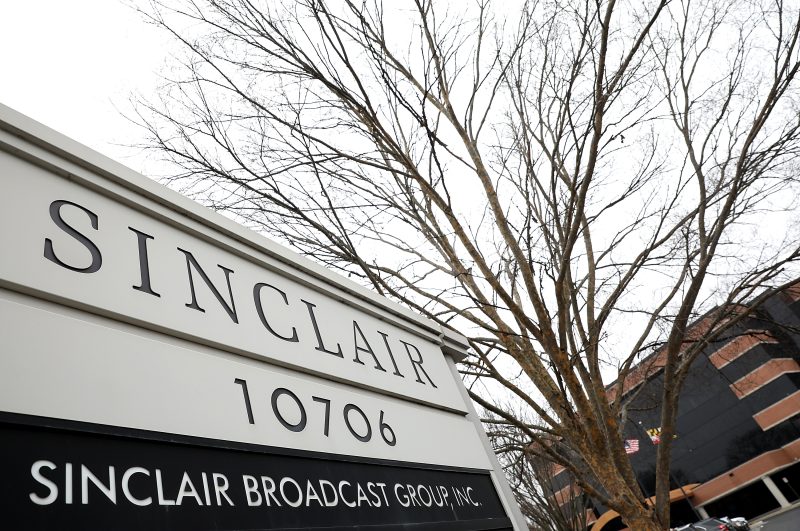Sinclair’s Recipe for TV News: Selling Crime, Homelessness, and Illegal Drugs
In the era of clickbait journalism, news networks are constantly striving to capture the attention of viewers. It seems that sensationalism has become the norm, with stories focusing on crime, homelessness, and illegal drugs dominating headlines. While the media plays a crucial role in informing the public, it is essential to question the motivations and ethics behind this type of reporting.
One company, in particular, has come under fire for their alarming recipe for TV news: Sinclair Broadcast Group. With their vast network of local television stations across the United States, Sinclair has gained notoriety for their alleged conservative bias and propensity for broadcasting fear-inducing content.
Crime is undoubtedly a topic of public interest, as people want to be informed about the safety of their communities. However, Sinclair seems to have taken this interest and amplified it to an extreme, focusing on crime stories that perpetuate fear and paranoia. By highlighting sensational crimes and presenting them as everyday occurrences, they are creating a distorted image of reality. This approach not only feeds into the public’s fears but also detracts attention from other critical issues that require attention and resources.
Homelessness, another issue that plagues many communities, is often exploited by Sinclair for shock value. Although homelessness is a complex issue with underlying causes such as housing affordability and mental health, Sinclair’s news segments often paint a simplified and often derogatory picture of those experiencing homelessness. By emphasizing the problems associated with homelessness, such as crime or unsanitary living conditions, without exploring the underlying causes or potential solutions, Sinclair perpetuates harmful stereotypes and fails to serve the public interest.
Illegal drugs is yet another topic that often captivates headlines. Sinclair’s coverage of this issue seems to follow a similar pattern: focusing on the negative aspects of drug use without providing a nuanced understanding of the complex factors that contribute to addiction. By portraying drug addicts solely as criminals or societal burdens, Sinclair fails to address the root causes of addiction or delve into potential solutions such as rehabilitation programs or harm reduction strategies. This type of reporting only serves to stigmatize individuals struggling with addiction instead of promoting compassion and understanding.
So, why does Sinclair resort to this recipe for TV news? The answer lies in their pursuit of profit. By instilling fear and sensationalism into their reporting, Sinclair attracts more viewers and subsequently higher advertising revenue. While profit is a natural goal for any business, it becomes problematic when it comes at the expense of ethical journalism and the well-being of the community being served.
It is crucial for viewers to critically assess the content they consume and consider the motivations of the media organizations behind it. By seeking out alternative news sources that prioritize unbiased reporting and ethical journalism, individuals can make more informed decisions about the issues that truly matter. Latching onto the fear-inducing narratives perpetuated by Sinclair and similar news outlets only perpetuates a cycle of misinformation and division.
In conclusion, Sinclair Broadcast Group’s recipe for TV news, focused on crime, homelessness, and illegal drugs, falls short of ethical journalism. By prioritizing sensationalism for profit, they create a distorted image of reality that feeds into public fears and perpetuates harmful stereotypes. It is imperative for viewers to be discerning in their consumption of news and to seek out sources that provide unbiased and ethical reporting. Only then can we hope to foster a more informed and compassionate society.
